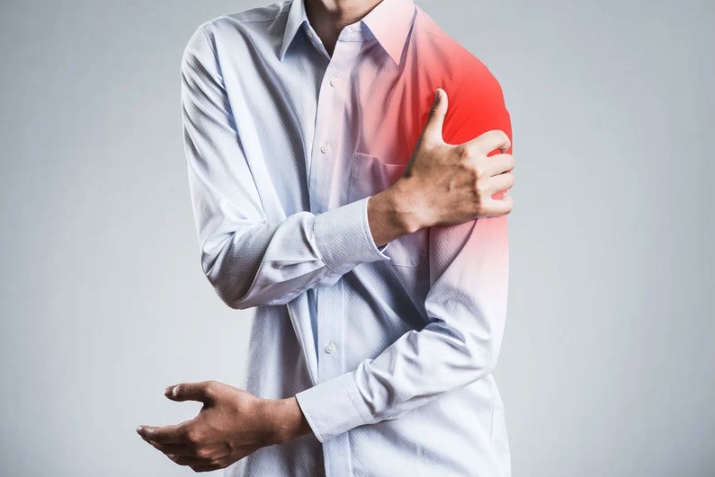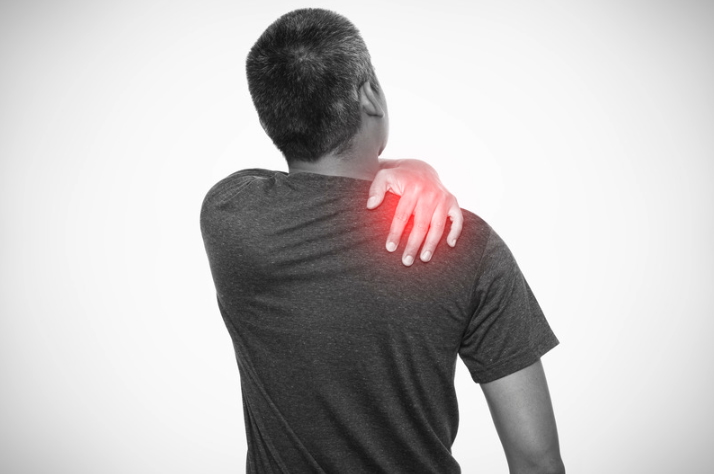This is one of the most frequent questions that I get from patients. And it’s not an easy one to answer.
Understanding the Complexity Of Shoulder Surgery Recovery

The truth is, there are no perfect guidelines that fit everyone. Each patient is different. Each surgery is different.
And each recovery progresses at its own pace. Driving requires coordination, reaction time, and strength in both arms—especially when something unexpected happens on the road.
New Research Provides Insight
Recently a team at The Hospital for Joint Diseases led by one of my shoulder fellowship mentors Dr. Laith Jazrawi produced a study that makes some recommendations about safe driving after labrum and rotator cuff repair surgery.
The study concluded that one should wait at least six weeks before considering driving after rotator cuff or labrum repair surgery.
Why Good Studies Are Hard to Do
There are not a lot of good studies on this topic. This is because it is a difficult topic to study. If we studied patients who recently had surgery in an actual driving situation, the risk for shoulder injury and for a life-threatening accident would just be too great to make that study ethical.
Using Driving Simulators for Safer Analysis: But just as pilots use flight simulators to train, we now have reliable driving simulators that can help us answer some of these questions in a low-risk environment.
Findings From the Driving Simulator Study
Dr. Jazrawi’s study examined total number of collisions, centerline crossings, and road edge excursions at preoperative baseline, six weeks, and twelve weeks postoperatively. The study compared the patients to simulator results of a healthy group with both arms available who had first the dominant then non-dominant arm placed in a sling.
The study found that collision rates nearly doubled at 6 weeks for patients who had surgery on their dominant arm and increased by about ¼ for those who had surgery on the non-dominant arm compared to the pre operative scenario. The rates returned to normal by 12 weeks.
Applying Study Data to Real Life
Interestingly, the findings agree with the practices to which I have always adhered: no driving while in a sling or until at least six weeks after rotator cuff or labrum repair surgery.
Functional Milestones for Safe Driving
My rule of thumb has always been that you are not allowed to drive until you can comfortably raise both arms to at least shoulder level. This rule of thumb seems to correlate well with their more formalized data.
Why Six Weeks Is a Critical Threshold
I know as a patient this is not easy advice to follow. It restricts your mobility and makes you dependent on other people in the early period after surgery. But if I’m going to ask you to wear a sling for about six weeks, then I can’t in good conscience let you drive a car.

Aside from the fact that your rotator cuff is still healing early after surgery, the other reason why we must limit people’s driving is because technically it is necessary to have two hands to drive. Sure, some people skirt the rules and will drive only with one hand. But as your surgeon it is my job to protect you in case of the worst-case scenario. The worst-case scenario would be when you have to react quickly to avoid a pedestrian or oncoming traffic.
Types of Procedures That Require Restrictions
Take-home message for patients: you should restrict driving after shoulder repairs for at least six weeks.
For me, this includes:
- Shoulder stabilization procedures
- Rotator cuff repairs
- Shoulder replacements
These procedures involve reattachment or reconstruction of major tendons and joints, and healing is critical to avoid re-injury or surgical failure.
Procedures With Less Restriction
Not all rotator cuff or labrum surgeries are “repairs,” however. This can create some confusion. Sometimes your surgeon only needs to smooth the rough edges of labrum of rotator cuff. And this does NOT require the same level of restriction with driving.
If your procedure is arthroscopic but did not involve suture anchors or grafts—for example, a subacromial decompression or isolated debridement—then the timeline to return to driving might be shorter. These procedures generally have quicker recoveries and less risk involved with moderate shoulder activity in the early weeks.
Always clarify the specific type of surgery you had and the recommended timeline with your surgeon. When in doubt, err on the side of caution.
Impact of Medication on Driving Safety
Another important factor that can affect your ability to drive safely is pain medication. If you are taking narcotics or other medications that affect your reflexes or alertness, you should not be driving, regardless of whether your shoulder feels good enough.
Patients are sometimes surprised by how long even mild pain medications can affect their cognitive function. It is critical that you are off all sedating medications and feel mentally sharp before you consider driving.
Planning Ahead for Recovery
This is obviously one of the more difficult aspects of having shoulder surgery and this is why having a good social support network is so important after an operation.
Before your surgery, make sure to:
- Arrange reliable transportation for at least the first six weeks
- Set up grocery or meal delivery services if needed
- Notify your workplace of driving limitations
- Plan for follow-up appointments with a family member or friend
If you live alone or don’t have immediate access to help, let us know in advance. We can help connect you with case managers or outpatient services that may assist.
Short Trips Still Carry Risks
Sometimes patients ask if they can just drive around the block or make a quick trip to the store. While the risk may seem lower, remember that the real danger is not distance—it’s unpredictability. You might only be driving five minutes, but accidents can happen in seconds.
Until you are fully cleared and functionally capable, short trips carry the same legal and medical risks as long ones.
The Bottom Line on Driving After Shoulder Surgery Driving is one of the last things patients get back to doing after shoulder surgery. That’s not because we want to limit your independence. It’s because driving demands full control, quick reactions, and both hands on the wheel. Even if you feel “fine,” healing tissues beneath the surface may not be ready.
Wait at least six weeks after shoulder repair surgery, and only resume driving when:
- You are no longer in a sling
- You have full functional use of both arms
- You are off narcotic or sedating medications
- Your surgeon has cleared you to do so
We want you to heal right—not just fast. If you have any doubts, talk to us before getting behind the wheel.
